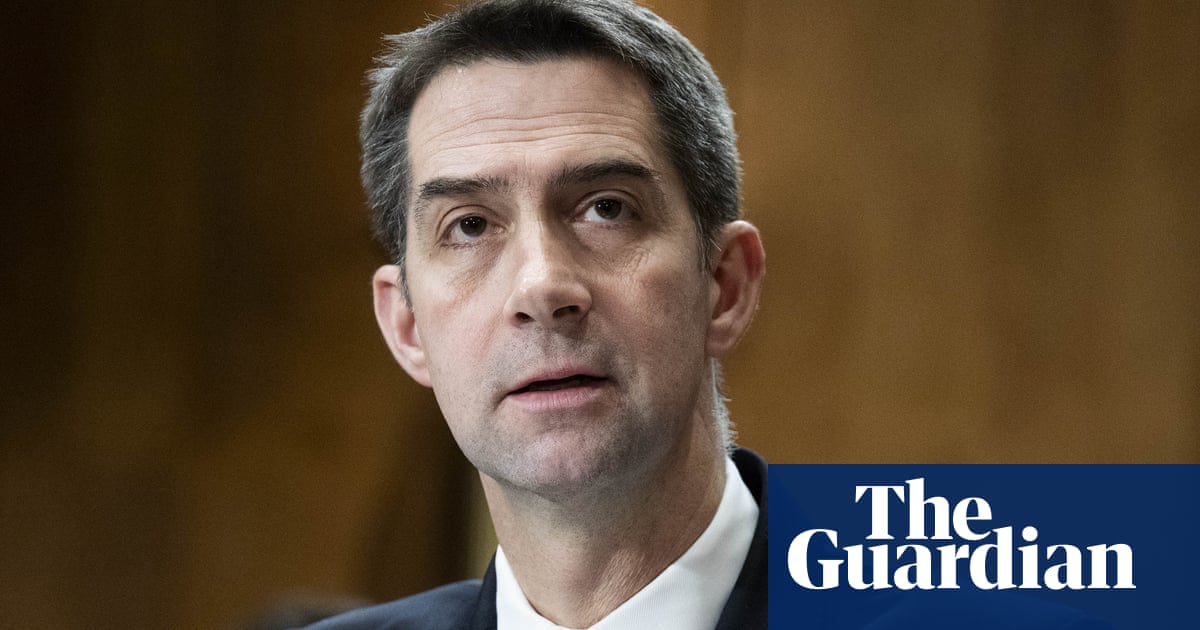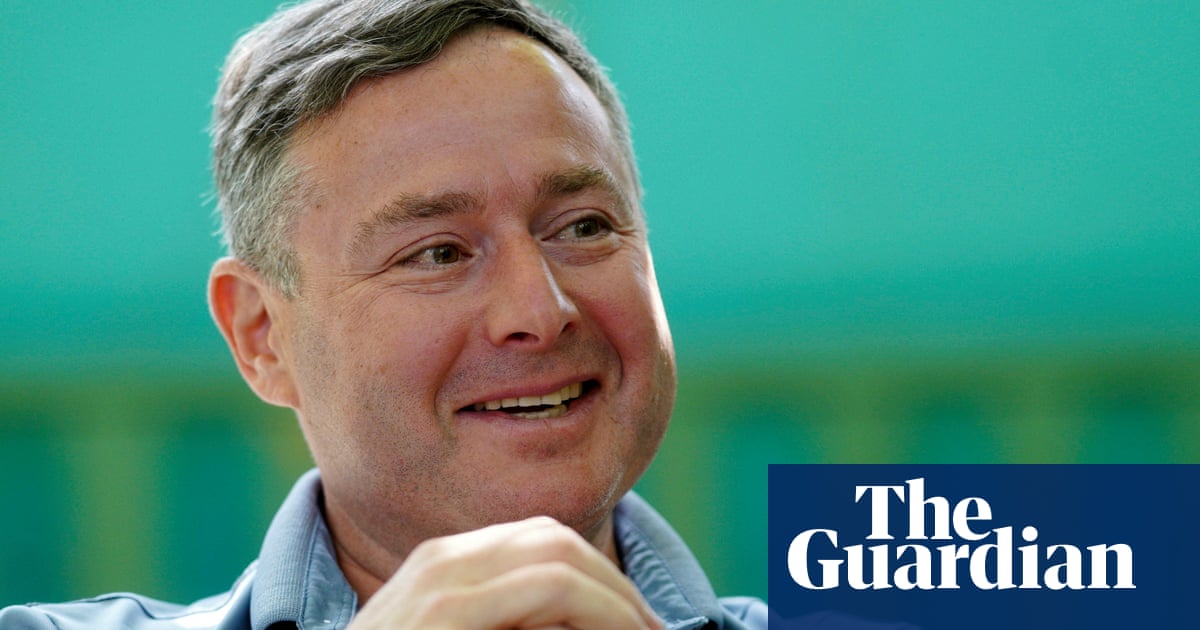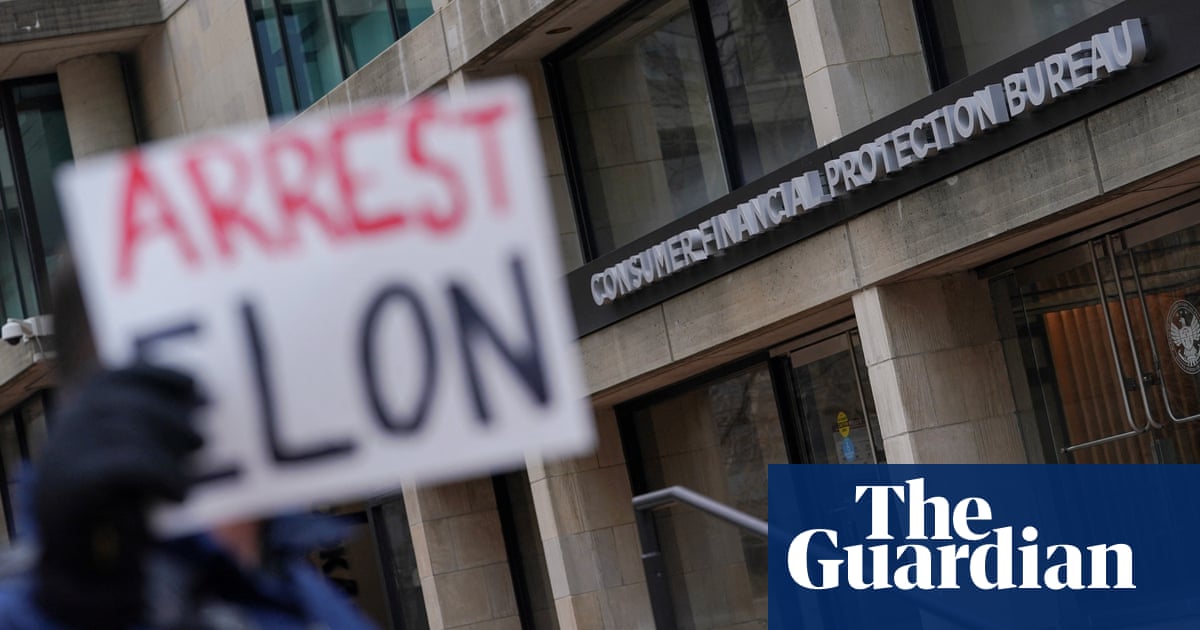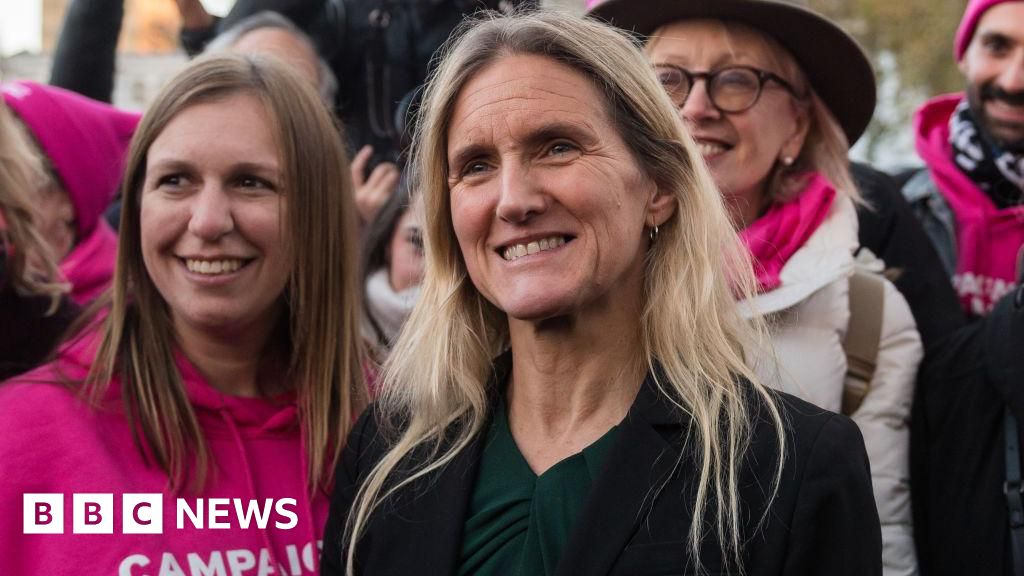WASHINGTON (AP) — Elon Musk has long railed against the U.S. government, saying a crushing number of federal investigations and safety programs have stymied Tesla, his electric car company, and its efforts to create fleets of robotaxis and other self-driving automobiles.
Now, Musk’s close relationship with President Donald Trump means many of those federal headaches could vanish within weeks or months.
On the potential chopping block: crash investigations into Tesla’s partially automated vehicles; a Justice Department criminal probe examining whether Musk and Tesla have overstated their cars’ self-driving capabilities; and a government mandate to report crash data on vehicles using technology like Tesla’s Autopilot.
The consequences of such actions could prove dire, say safety advocates who credit the federal investigations and recalls with saving lives.
“Musk wants to run the Department of Transportation,” said Missy Cummings, a former senior safety adviser at the National Highway Traffic Safety Administration. “I’ve lost count of the number of investigations that are underway with Tesla. They will all be gone.”
Within days of Trump taking office, the White House and Musk began waging an unbridled war against the federal government — freezing spending and programs while sacking a host of career employees, including prosecutors and government watchdogs typically shielded from such brazen dismissals without cause.
The actions have sparked outcries from legal scholars who say the Trump administration’s actions are without modern-day precedent and are already upending the balance of power in Washington.
The Trump administration has not yet declared any actions that could benefit Tesla or Musk’s other companies. However, snuffing out federal investigations or jettisoning safety initiatives would be an easier task than their assault on regulators and the bureaucracy.
Investigations into companies like Tesla can be shut down overnight by the new leaders of agencies. And safety programs created through an agency order or initiative — not by laws passed by Congress or adopted through a formal regulatory process — can also be quickly dissolved by new leaders. Unlike many of the dismantling efforts that Trump and Musk have launched in recent weeks, stalling or killing such probes and programs would not be subject to legal challenges.
As such, the temporal and fragile nature of the federal probes and safety programs make them easy targets for those seeking to weaken government oversight and upend long-established norms.
“Trump’s election, and the bromance between Trump and Musk, will essentially lead to the defanging of a regulatory environment that’s been stifling Tesla,” said Daniel Ives, a veteran Wall Street technology and automobile industry analyst.
Musk's empire
Among Musk’s businesses, the federal government’s power over Tesla to investigate, order recalls, and mandate crash data reporting is perhaps the most wide-ranging. However, the ways the Trump administration could quickly ease up on Tesla also apply in some measure to other companies in Musk’s sprawling business empire.
A host of Musk's other businesses — such as his aerospace company SpaceX and his social media company X — are subjects of federal investigations.
Musk’s businesses are also intertwined with the federal government, pocketing hundreds of millions of dollars each year in contracts. SpaceX, for example, has secured nearly $20 billion in federal funds since 2008 to ferry astronauts and satellites into space. Tesla, meanwhile, has received $41.9 million from the U.S. government, including payment for vehicles provided to some U.S. embassies.
Musk, Tesla’s billionaire CEO, has found himself in his newly influential position by enthusiastically backing Trump’s third bid for the White House. He was the largest donor to the campaign, plunging more than $270 million of his vast fortune into Trump’s political apparatus, most of it during the final months of the heated presidential race.
Those donations and his efforts during the campaign — including the transformation of his social media platform X into a firehose of pro-Trump commentary — have been rewarded by Trump, who has tapped the entrepreneur to oversee efforts to slash government regulations and spending.
As the head of the Department of Government Efficiency, Musk operates out of an office in the Eisenhower Executive Office Building, where most White House staff work and from where he has launched his assault on the federal government. Musk’s power under DOGE is being challenged in the courts.
Even before Trump took office, there were signs that Musk’s vast influence with the new administration was registering with the public — and paying dividends for Tesla.
Tesla’s stock surged more than 60% by December. Since then, its stock price has dropped, but still remains 40% higher than it was before Trump's election.
“For Musk,” said Ives, the technology analyst, “betting on Trump is a poker move for the ages.”
Proposed actions will help Tesla
The White House did not respond to questions about how it would handle investigations and government oversight involving Tesla or other Musk companies. A spokesman for the transition team said last month that the White House would ensure that DOGE and “those involved with it are compliant with all legal guidelines and conflicts of interest.”
In the weeks before Trump took office on Jan. 20, the president-elect’s transition team recommended changes that would benefit the billionaire and his car company, including scrapping the federal order requiring carmakers to report crash data involving self-driving and partially automated technology.
The action would be a boon for Tesla, which has reported a vast majority of the crashes that triggered a series of investigations and recalls.
The transition team also recommended shelving a $7,500 consumer tax credit for electric vehicle purchases, something Musk has publicly called for.
“Take away the subsidies. It will only help Tesla,” Musk wrote in a post on X as he campaigned and raised money for Trump in July.
Auto industry experts say the move would have a nominal impact on Tesla — by far the largest electric vehicle maker in the U.S. — but have a potentially devastating impact on its competitors in the EV sector since they are still struggling to secure a foothold in the market.
Musk did not respond to requests for comment. Before the election, he posted a message on X, saying he had never asked Trump “for any favors, nor has he offered me any.”
Although most of the changes that Musk might seek for Tesla could unfold quickly, there is one long-term goal that could impact the autonomous vehicle industry for decades to come.
Though nearly 30 states have rules that specifically govern self-driving cars, the federal government has yet to craft such regulations.
During a late October call with Tesla investors, as Musk was pouring hundreds of millions of dollars into Trump’s campaign, he signaled support for having the federal government create these rules.
“There should be a federal approval process for autonomous vehicles,” Musk said on the call. “If there’s a department of government efficiency, I’ll try to help make that happen.”
Musk leads that very organization.
Those affected by Tesla crashes worry about lax oversight
People whose lives have been forever changed by Tesla crashes fear that dangerous and fatal accidents may increase if the federal government’s investigative and recall powers are restricted.
They say they worry that the company may otherwise never be held accountable for its failures, like the one that took the life of 22-year-old Naibel Benavides Leon.
The college student was on a date with her boyfriend, gazing at the stars on the side of a rural Florida road, when they were struck by an out-of-control Tesla driving on Autopilot — a system that allows Tesla cars to operate without driver input. The car had blown through a stop sign, a flashing light and five yellow warning signs, according to dashcam video and a police report.
Benavides Leon died at the scene; her boyfriend, Dillon Angulo, suffered injuries but survived. A federal investigation determined that Autopilot in Teslas at this time was faulty and needed repairs.
“We, as a family, have never been the same,” said Benavides Leon’s sister, Neima. “I’m an engineer, and everything that we design and we build has to be by important codes and regulations. This technology cannot be an exception.”
“It has to be investigated when it fails,” she added. “Because it does fail.”
Tesla’s lawyers did not respond to requests for comment. In a statement on Twitter in December 2023, Tesla pointed to an earlier lawsuit the Benavides Leon's family had brought against the driver who struck the college student. He testified that despite using Autopilot, “I was highly aware that it was still my responsibility to operate the vehicle safely.”
Tesla also said the driver “was pressing the accelerator to maintain 60 mph," an action that effectively overrode Autopilot, which would have otherwise restricted the speed to 45 mph on the rural route, something Benavides Leon's attorney disputes.
Federal probes into Tesla
The federal agency that has the most power over Tesla — and the entire automobile industry — is the National Highway Traffic Safety Administration, which is part of the Department of Transportation.
NHTSA sets automobile safety standards that must be met before vehicles can enter the marketplace. It also has a quasi-law enforcement arm, the Office of Defects Investigation, which has the power to launch probes into crashes and seek recalls for safety defects.
The agency has six pending investigations into Tesla’s self-driving technology, prompted by dozens of crashes that took place when the computerized systems were in use.
Other federal agencies are also investigating Musk and Tesla, and all of those probes could be sidelined by Musk-friendly officials:
—The Securities and Exchange Commission and Justice Department are separately investigating whether Musk and Tesla overstated the autonomous capabilities of their vehicles, creating dangerous situations in which drivers may over rely on the car’s technology.
—The Justice Department is also probing whether Tesla misled customers about how far its electric vehicles can travel before needing a charge.
—The National Labor Relations Board is weighing 12 unfair labor practice allegations leveled by workers at Tesla plants.
—The Equal Employment Opportunity Commission is asking a federal judge to force Tesla to enact reforms and pay compensatory and punitive damages and backpay to Black employees who say they were subjected to racist attacks. In a federal lawsuit, the agency has alleged that supervisors and other employees at Tesla’s plant in Fremont, California, routinely hurled racist insults at Black employees.
Experts said most, if not all, of those investigations could be shut down, especially at the Justice Department where Trump has long shown a willingness to meddle in the department’s affairs. The Trump administration has already ordered the firing of dozens of prosecutors who handled the criminal cases from the Jan. 6, 2021 attack on the Capitol.
“DOJ is not going to be prosecuting Elon Musk,” said Peter Zeidenberg, a former Assistant U.S. Attorney in the Justice Department's public integrity section who served during the Clinton and George H.W. Bush administrations. “I’d expect that any investigations that were ongoing will be ground to an abrupt end.”
Trump has also taken steps to gain control of the NLRB and EEOC. Last month, he fired Democratic members of the board and commission, breaking with decades of precedent. One member has sued, and two others are exploring legal options.
Tesla and Musk have denied wrongdoing in all those investigations and are fighting the probes.
The small safety agency in Musk's crosshairs
The federal agency that appears to have enjoyed the most success in changing Tesla’s behavior is NHTSA, an organization of about 750 staffers that has forced the company to hand over crash data and cooperate in its investigations and requested recalls.
“NHTSA has been a thorn in Musk’s side for over the last decade, and he’s grappled with almost every three-letter agency in the Beltway,” said Ives, the Wall Street analyst who covers the technology sector and automobile industry. “That’s all created what looks to be a really big soap opera in 2025.”
Musk has repeatedly blamed the federal government for impeding Tesla’s progress and creating negative publicity with recalls of his cars after its self-driving technology malfunctions or crashes.
“The word ‘recall’ should be recalled,” Musk posted on Twitter (now X) in 2014. Two years ago, he posted, “The word ‘recall’ for an over-the-air software update is anachronistic and just flat wrong!”
Michael Brooks, executive director of the Center for Auto Safety, a non-profit consumer advocacy group, said some investigations might continue under Trump, but a recall is less likely to happen if a defect is found.
As with most car companies, Tesla’s recalls have so far been voluntary. The threat of public hearings about a defect that precedes a NHTSA-ordered recall has generally prompted car companies to act on their own.
That threat could be easily stripped away by the new NHTSA administrator, who will be a Trump appointee.
“If there isn’t a threat of recall, will Tesla do them?” Brooks said. “Unfortunately, this is where politics seeps in.”
NHTSA conducting several probes of Tesla
Among the active NHTSA investigations, several are examining fundamental aspects of Tesla’s partially automated driving systems that were in use when dozens of crashes occurred.
An investigation of Tesla’s “Full Self-Driving” system started in October after Tesla reported four crashes to NHTSA in which the vehicles had trouble navigating through sun glare, fog and airborne dust. In one of the accidents, an Arizona woman was killed after stopping on a freeway to help someone involved in another crash.
Under pressure from NHTSA, Tesla has twice recalled the “Full Self-Driving” feature for software updates. The technology — the most advanced of Tesla’s Autopilot systems — is supposed to allow drivers to travel from point to point with little human intervention. But repeated malfunctions led NHTSA to recently launch a new inquiry that includes a crash in July that killed a motorcyclist near Seattle.
NHTSA announced its latest investigation in January into “Actually Smart Summon,” a Tesla technology that allows drivers to remotely move a car, after the agency learned of four incidents from a driver and several media reports.
The agency said that in each collision, the vehicles were using the system that Tesla pushed out in a September software update that was “failing to detect posts or parked vehicles, resulting in a crash.” NHTSA also criticized Tesla for failing to notify the agency of those accidents.
NHTSA is also conducting a probe into whether a 2023 recall of Autopilot, the most basic of Tesla’s partially automated driver assistance systems, was effective.
That recall was supposed to boost the number of controls and alerts to keep drivers engaged; it had been prompted by an earlier NHTSA investigation that identified hundreds of crashes involving Autopilot that resulted in scores of injuries and more than a dozen deaths.
In a letter to Tesla in April, agency investigators noted that crashes involving Autopilot continue and that they could not observe a difference between warnings issued to drivers before or after the new software had been installed.
Critics have said that Teslas don’t have proper sensors to be fully self-driving. Nearly all other companies working on autonomous vehicles use radar and laser sensors in addition to cameras to see better in the dark or in poor visibility conditions. Tesla, on the other hand, relies only on cameras to spot hazards.
Musk has said that human drivers rely on their eyesight, so autonomous cars should be able to also get by with just cameras. He has called technology that relies on radar and light detection to discern objects a “fool’s errand.”
Bryant Walker Smith, a Stanford Law School scholar and a leading automated driving expert, said Musk’s contention that the federal government is holding him back is not accurate. The problem, Smith said, is that Tesla’s autonomous vehicles cannot perform as advertised.
“Blaming the federal government for holding them back, it provides a convenient, if dubious, scapegoat for the lack of an actual automated driving system that works,” Smith said.
Smith and other autonomous vehicle experts say Musk has felt pressure to provide Tesla shareholders with excuses for repeated delays in rolling out its futuristic cars. The financial stake is enormous, which Musk acknowledged during a 2022 interview. He said the development of a fully self-driving vehicle was “really the difference between Tesla being worth a lot of money and being worth basically zero.”
The collisions from Tesla’s malfunctioning technology on its vehicles have led not only to deaths but also catastrophic injuries that have forever altered people’s lives.
Attorneys representing people injured in Tesla crashes — or who represent surviving family members of those who died — say without NHTSA, the only other way to hold the car company accountable is through civil lawsuits.
“When government can’t do it, then the civil justice system is left to pick up the slack,” said Brett Schreiber, whose law firm is handling four Tesla cases.
However, Schreiber and other lawyers say if the federal government’s investigative powers don’t remain intact, Tesla may also not be held accountable in court.
In the pending wrongful death lawsuit that Neima Benavides Leon filed against Tesla after her sister’s death, her attorney told a Miami district judge the lawsuit would have likely been dropped if NHTSA hadn’t investigated and found defects with the Autopilot system.
“All along we were hoping that the NHTSA investigation would produce what it did, in fact, end up producing, which is a finding of product defect and a recall,” attorney Doug Eaton said during a March court hearing. “And we had told you very early on in the case if NHTSA had not found that, we may very well drop the case. But they did, in fact, find this.”
___
Contact AP’s global investigative team at [email protected] or https://www.ap.org/tips/

 German (DE)
German (DE)  English (US)
English (US)  Spanish (ES)
Spanish (ES)  French (FR)
French (FR)  Hindi (IN)
Hindi (IN)  Italian (IT)
Italian (IT)  Russian (RU)
Russian (RU) 






















Comments